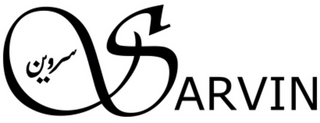The importance of sustainable fashion- Ethical and sustainable fashion has never been talked about as much as today; brands everywhere are emphasising their ‘transparent’’ approaches and movements towards using more environmentally friendly manufacturing processes.
Sarvin’s most primary values are being sustainable and monitoring our whole supply chain. We are always researching ways to have a more ethically and environmentally conscious approach.
The main issues within the fashion industry regarding this topic are as follows:
- The high street often uses exploitative working conditions within its supply chain.
- Child workers often face violence and abuse, unpaid overtime, unhygienic and dangerous working conditions and poor pay.
- Growing cotton (a commonly used component within the industry) uses 22.5% of the world’s insecticides and 10% of the world’s pesticides, being both harmful for farmers and the environment.
- Chemicals used to dye fabrics are toxic to the environment and harmful to humans.
- The majority of fast fashion is designed to not last, therefore the majority will end up in incinerators or landfill sites. The UK throws away 1 million tonnes of clothing every year.
- Many animals are farmed purely to be used within fashion products.

In recent years there has evidentially been more awareness surrounding these critical issues. Numerous alternative fabrics have been produced, and more are being produced day after day:
- TENCEL X REFIBRA: A fabric made from 30% upcycled cotton scraps combined with wood pulp.
- Recycled cotton: Fabric repurposed from pre-or post-consumer cotton waste that would otherwise go to landfill. This fabric produces the same soft cotton feel without the harmful environmental impact of virgin cotton.
- Deadstock and vintage fabrics: Leftover and over-ordered fabrics from designers and fabric warehouses. This reduces landfill waste and can save more than 13,000 pounds of CO2 emissions per person per year.
- Linen: Fabric made from flax. Linen is strong, gentle to the skin and the planet. Linen uses no water and emits a quarter of the amount of carbon compared to cotton per pound of fibre.
- TENCEL Modal: A wood-based fabric that is processed from sustainably managed beechwood forests. This fabric requires less fertilisers and produces twice as much fibre yield as cotton plants.
- Recycled cashmere: A fabric made from repurposed and regenerated cashmere clippings that produce the same smooth feel as conventional cashmere. On average, 1kg of recycled cashmere has 80% less environmental impact than traditional cashmere. Recycled cashmere also prevents the overgrazing of Mongolian coats (the source of cashmere). This overgrazing has led to a reduction of grasslands and an increase in deserts.
- ECONYL – A regenerated nylon that involves no waste, no harming of new resources and no hazardous chemicals within its production.
- Alpaca wool – A renewable fibre. Alpaca wool has a lower environmental impact than conventional thread.

At Sarvin, we have implemented practices to produce a cleaner supply chain. These include:
- Sourcing fabrics from suppliers who follow working regulations.
- Sourcing fabrics that are eco-friendly and high quality.
- Maintaining quality control measures to ensure our products are long-lasting to reduce landfill waste.
- Ensuring our suppliers are paid a living wage.

For you to live a more sustainable lifestyle, you only have to make a few minor changes:
- Shop at sustainable and transparent independent brands. Doing so guarantees pieces will be long-lasting and of the highest quality. This will reduce landfill waste and make your wardrobe so much more special!
- Learn to mend clothes. Treat yourself to a sewing machine and get practising! You will be able to fix garments if they rip easily and create a more long-lasting wardrobe. You will also be able to produce smaller items from offcuts, such as making scarfs and bags.
- Donate unwanted clothes instead of chucking them away. Many charities accept clothing donations; all you need to do is post them or drop them off in a charity shop. Your unworn garment could be someone else’s favourite dress!
- Look after your clothes! If it is a beautiful Sarvin dress, it should be taken care of properly and worn appropriately.
- Chose quality over quantity. This is an essential message; shopping from independent, thoroughly transparent businesses ensures quality and less environmental impact.

The importance of ethical and sustainable fashion is something we should all research and try to implement within our shopping habits. Sarvin is always looking for ways to do this. Our eco-friendly collection is made from recycled cotton linters,; a waste product from the textile industry. The dress's fibres are produced using a ‘closed-loop' process meaning they can be extracted after usage and reused.
The suppliers of this fabric are the first V-Labelled textile producer in the world. The European Vegetarian Union certifies our eco-friendly fabric yarns to correspond with the European Vegetarian Label and Vegan V-Label.
SHOP SARVINS ECO-FRIENDLY COLLECTION

